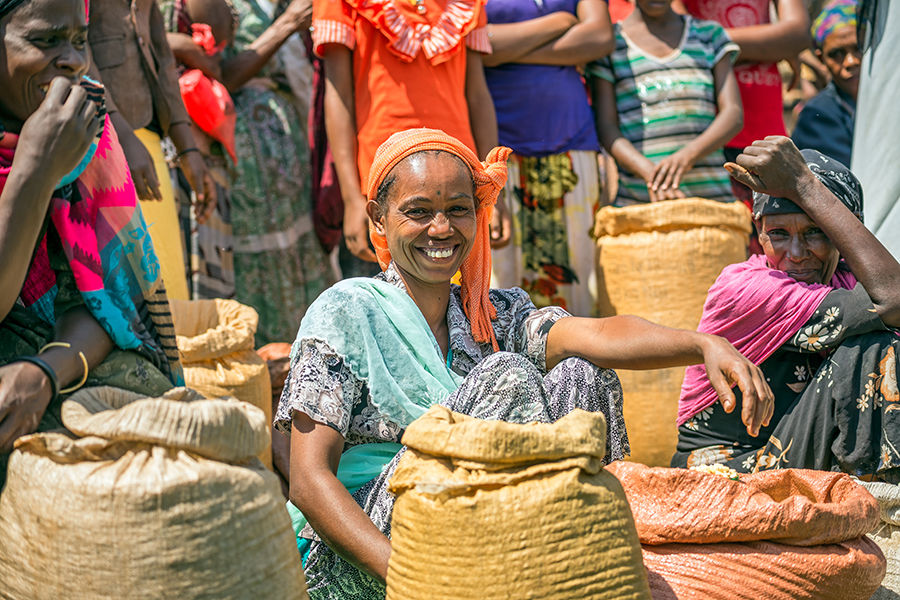Addis Ababa, Ethiopia, Sep 1, 2016 / 08:35 am (CNA).- Making a living is tough in parts of Ethiopia, but a Catholic-run program aims to change that. “When we first began people said to us that we were wasting our time and we would not be successful but we were not discouraged and continued to strive. Within just a year look at what a different story it has become,” said Addisu Mutturu, a beneficiary of the program.
The program, called Supporting Horn of Africa Resilience, is run under the Ethiopian Catholic Church Social and Development Commission in association with Caritas Ethiopia, the Catholic News Agency for Africa reports. The program aims to encourage personal savings through small savings groups. It encourages young people to save 20 percent of startup capital costs for small business then helps them raise the rest of the costs. It connects them to a local microfinance institution that can train them on business plans and management based on their situation.
The program has a project in Ethiopia’s Boloso Sore District that helps youth raise seedlings and pays them daily wages as laborers. It especially aims to help women and young people. Mutturu, who heads the local project team, said the project has extended into poultry production and cattle breeding. It purchased 16 oxen for fattening without taking out a loan.
He recounted the many difficulties he faced after he finished high school and failed to pass the university entrance exam. He could not get a job in his home village, so he moved to the national capital, Addis Ababa, where life was “very difficult.” He worked as a vendor and a taxi assistant but fell into substance abuse and became a petty thief.
After he returned home, he became a beneficiary of the project. He is working every day and supporting his family’s household. “I realize that being employed by the government and migrating are not the only means, and if you work hard enough there are many opportunities for making money and growing right in my home village,” he said.
Another participant, Melese Morebo, can now support his family. He said the business group helped develop a collaborative culture to achieve its progress.
Alemitu Alemu, another project beneficiary, failed to finish high school and left home for a job opportunity that never developed. She ended up having to become a peanut vendor. She returned home with the intention it would be temporary, but the project now provides her a living income and a bit of savings. She no longer needs to worry about poverty and does not see a need to leave home. “Today is great and tomorrow will be better,” she said.

